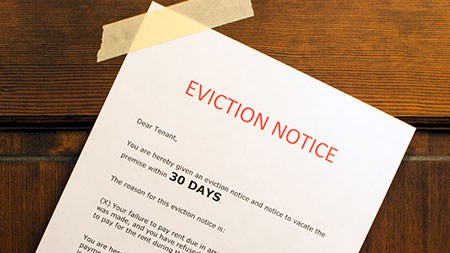In today’s economic climate, wasting time, energy and money on a tenant that will default on payments or stop paying completely is just not an option.
And yet, in Q1 2019, almost 40% of tenancy applications were classified as either ‘high risk’ or ‘very high risk’, according to the PayProp Rental Index, a leading quarterly statistical analysis of the South African residential rental sector.
Read more: The Rental Housing Tribunal - know your rights
“This just shows again how important it is to properly assess tenants through credit checks and other means before placing them in a property you either own or manage,” says Johette Smuts from PayProp, SA’s largest processor of residential letting transactions. Smuts outlines three ways to spot a bad tenant to help rental agencies place better tenants:
1. Not all debt is created equal
“It’s important to distinguish between good and bad debt on credit checks,” says Smuts. Tenants can have two types of accounts – CPA (Credit Provider Association) accounts and NLR (National Loan Register) accounts. CPA accounts include insurance, mobile phone contracts, retail stores and vehicle finance. These are the type of accounts that you can reasonable expect someone to have, and can be viewed as ‘good debt’, she says.
“NLR accounts are the ones you don’t want to see on a credit check. These include short-term loans from micro-lenders, usually with very high interest rates, and can be seen as ‘bad debt’. Higher risk tenants usually have fewer ‘good debt’ accounts and more ‘bad debt’ accounts than less risky tenants,” says Smuts.
2. Interrogate credit enquiries
When potential tenants apply for credit, it could be a sign that they aren’t able to get by on their earnings. If they are applying for credit often, it is an indication that either the credit they received initially wasn’t sufficient, or that the credit wasn’t granted, leading the applicant to re-apply somewhere else. As with anything, there are exceptions – a tenant could simply be shopping around for the best interest rate for vehicle finance, for example. Smuts says that overall, there is usually a correlation between riskiness of a tenant and the number of credit enquiries done through various institutions.
3. Unreliable payment behaviour
Most accounts have to be paid monthly, usually by a set date. Failure to make timeous payments will negatively affect a credit score and should be a red flag to anyone placing a tenant.
Other factors
Sometimes multiple cellphone numbers or even addresses can be indicative of poor creditworthiness, as it could indicate that an applicant is trying to avoid debt collectors.
“In the current economic climate, property owners and agents need to see risk management as their number one priority concerning placements,” advises Smuts. “Don’t compromise on tenant placement, recheck before you renew, and diligently chase arrears.”
Read more: The landlord's guide to dealing with late rental payments



